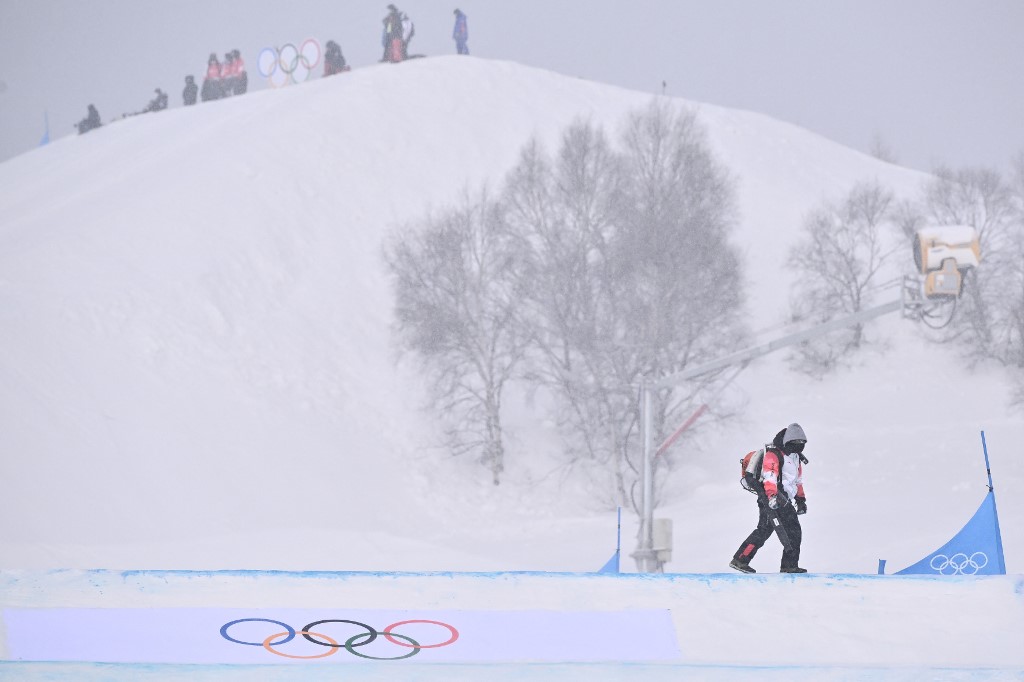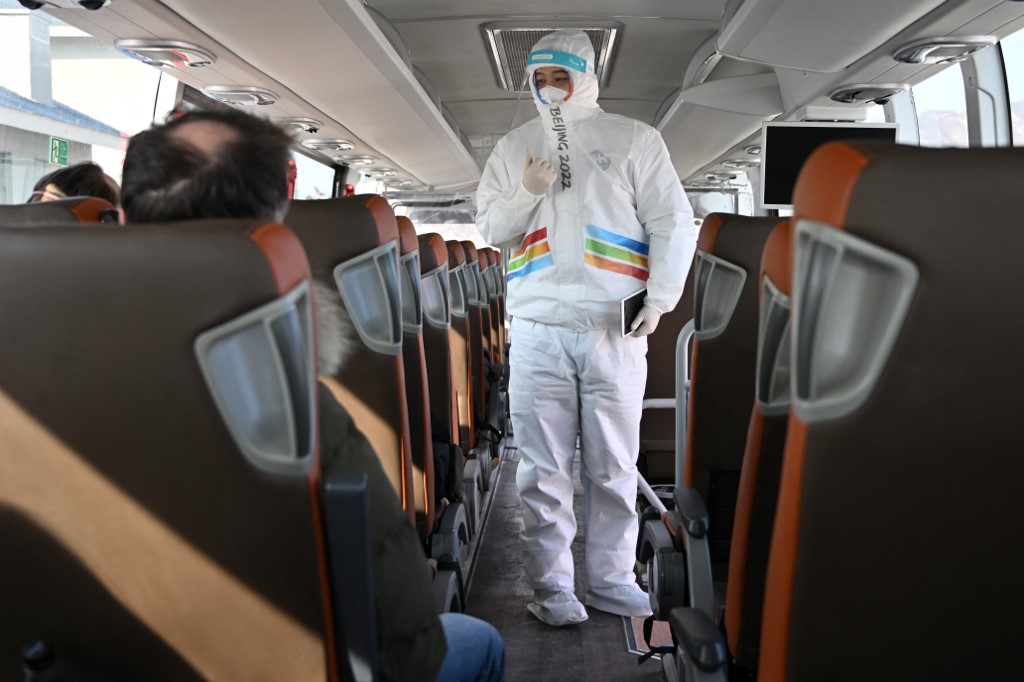Beijing 2022 is unprecedented for several reasons. Besides becoming the first city to have hosted both the Summer and Winter Olympics, organizers are also taking on the mammoth task of keeping COVID-19 infections at bay in a country with a strict zero-COVID strategy. A large part of this strategy is made possible by an impermeable Olympic bubble across three competition zones.
Naturally, this means unprecedented coordination among thousands of staff and participants—it takes a whole village (or city) to keep people at the Olympics safe, well-fed, and COVID-free. Here are some of the most unconventional jobs we’ve seen this year—the unsung heroes of the 2022 Winter Olympics.
Videos by VICE
COVID swabbers

Besides concerns about COVID-19 transmissions seeping into the rest of China, many worry that positive cases within the bubble could disrupt the events.
Donning hazmat suits and armed with a colossal amount of swabbing sticks, diligent swabbing staff in the Olympic villages are key to keeping the Olympic bubble COVID-free. Everyone is tested rigorously to prevent an outbreak.
Having to incessantly swab that many nostrils and mouths every day can be kind of a bummer, but these swabbers seem to be taking things in stride. On Valentine’s Day, some brought their own brand of romance to the Beijing air.
Snow shovelers

Considering that organizers had to rely entirely on fake snow for the Olympics due to the very un-snowy climate in Beijing, it’s ironic that snow finally befell Beijing this week and left Olympic staff scrambling to clear all the extra fluff.
With snowfall limiting the visibility of athletes and affecting the ground surface, some outdoor events were postponed for safety. Meanwhile, emergency teams were deployed to shovel the massive amount of snow—some desperately used leaf-blowers and brooms.
The efforts of these snow shoveling warriors were not in vain, as the Games have managed to proceed somewhat smoothly so far, just like the surface of the snow they’ve been clearing.
“Since 5 a.m. this morning, about 1,000 personnel have been at Genting Snow Park to clean up, so we were very well prepared,” Beijing organizing committee official Yang Shu’an told reporters on Feb. 13, after an overnight snowfall.
Shuttle bus drivers

With Olympic facilities spanning three different zones in Beijing’s closed loop, a fleet of hydrogen-powered buses have been ferrying athletes and reporters to competition venues every day. For athletes and staff who have been living in the stringent Olympic bubble, looking through the windows of these buses is often their only interaction with the real Beijing outside the Games.
When they’re out in the streets where no actual boundary exists between the Olympic bubble and the rest of Beijing, Olympic bus drivers are basically left to fend for themselves on their trips between the Olympic zones. While drivers navigate harsh weather conditions, the public has been warned to maintain a safe distance from these vehicles due to COVID-19 concerns—even if they’re caught in an accident.
Robots for everything

The moment athletes step into an Olympic village, they’re greeted by a whole bunch of machines. These weird replacements for mundane but essential jobs have become one of the biggest talking points of the Games.
From nagging at you to wear your mask to helping you find your way to a venue, robots are literally taking over Olympic villages. In the cafeteria, robotic arms prepare bowls of food while dangling claws drop them off at the table. They’re also great at making your daily cup of coffee (or cocktail).
The automation of daily services at the Winter Olympics looks like something straight out of a sci-fi movie; it’s also part and parcel of living in a Squid Game-esque Olympic bubble amid a pandemic. With thousands of athletes, journalists, and staff to take care of every day, the robotic wheels simply can’t stop turning.
Follow Koh Ewe on Instagram.




